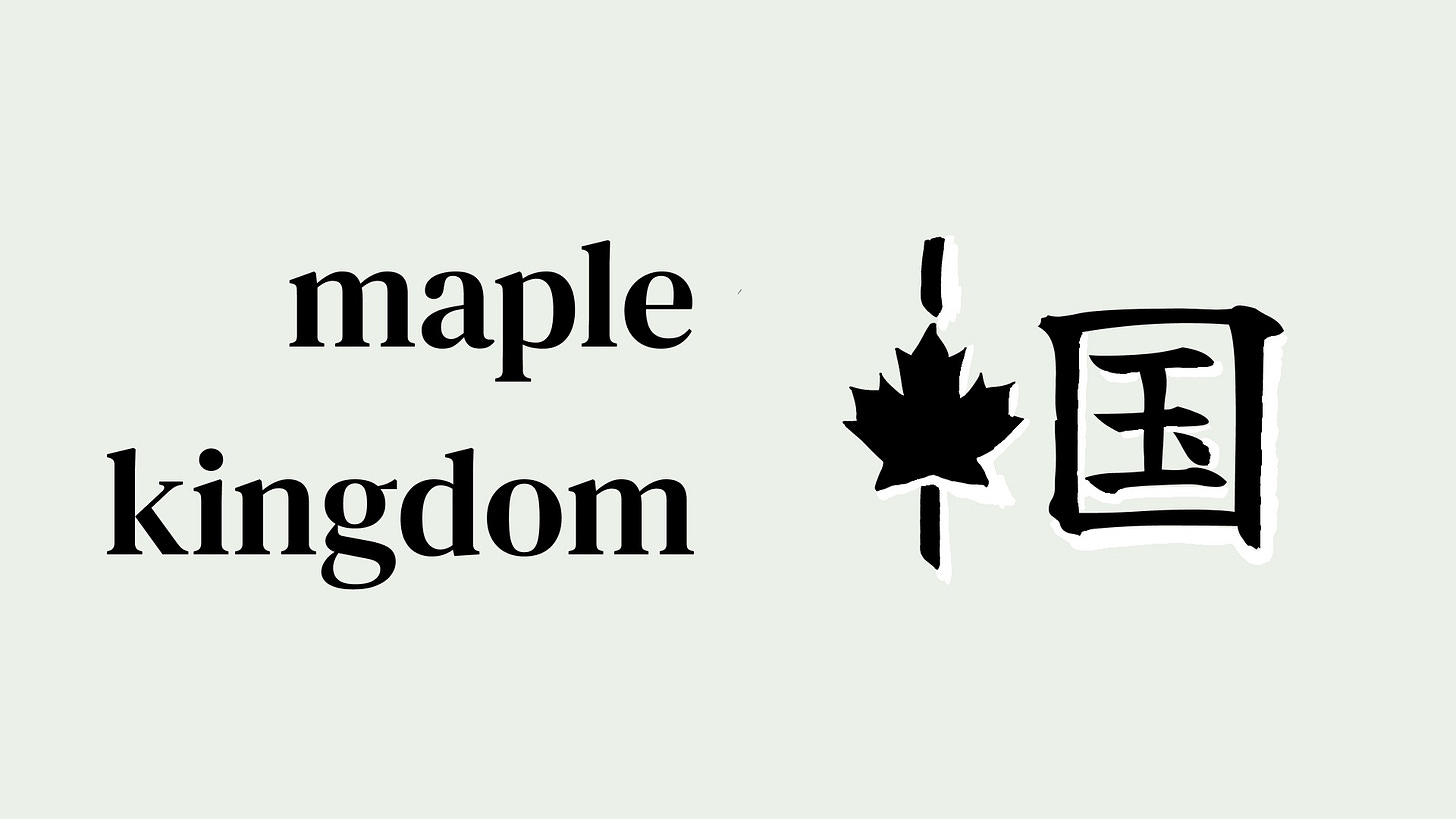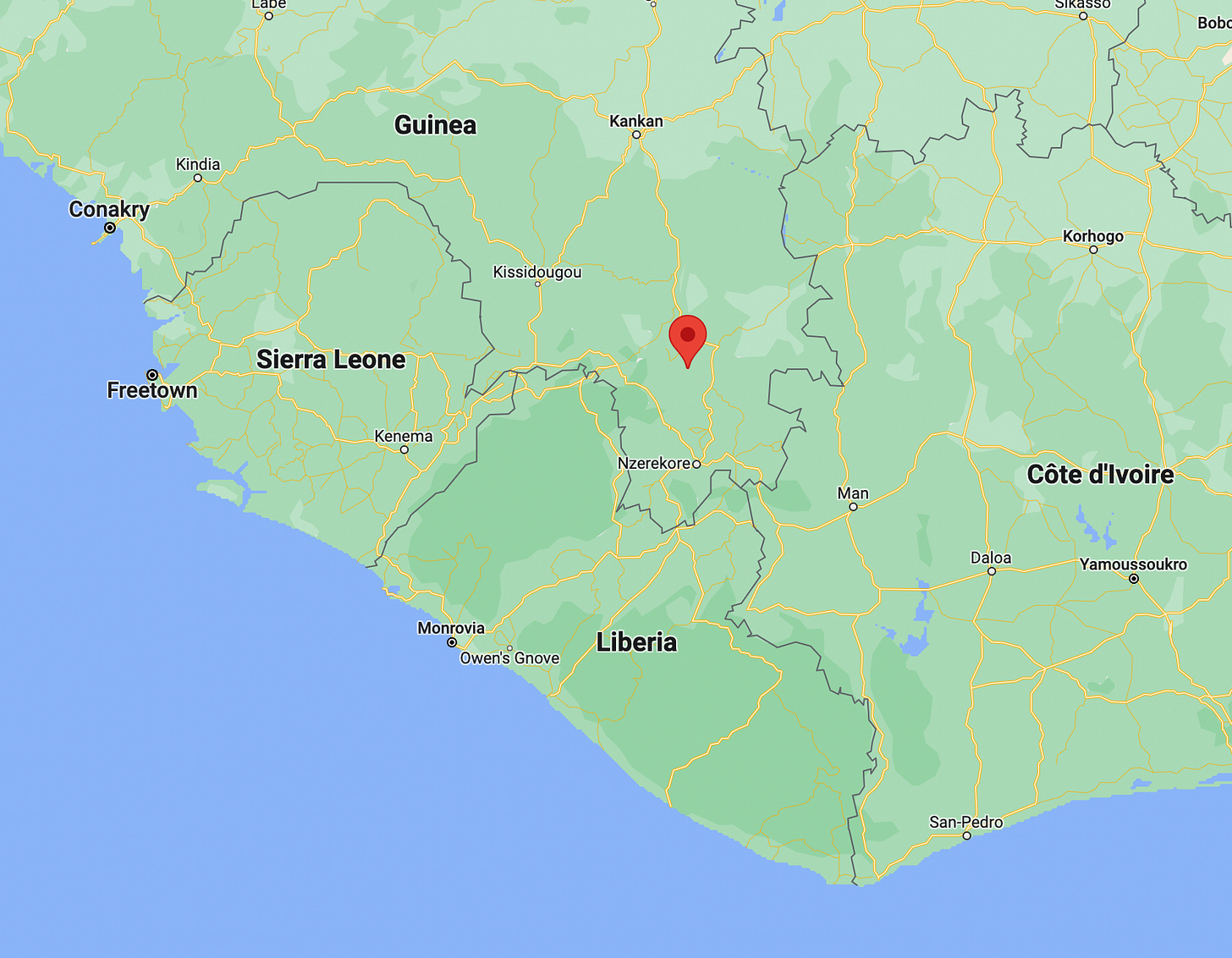Conflicts of Interest & the Perils of Shallow Foreign Policy Benches
Dominic Barton, the Simandou Mine, and the Indo-Pacific Advisory Board.
This week Simandou, the world’s largest high-purity iron ore deposit in the West African nation of Guinea, saw mining operations halted due to the lack of progress in negotiations to begin work on the massive infrastructure the government is requesting to be built in order to export the deposit.
The site is co-owned by Rio Tinto, an Australian mining company that also has extensive aluminum facilities in Canada, and the Chinese state-owned Aluminum company Chinalco.
These two companies have been asked to build the ‘trans-Guinean’ railroad to move the ore from the remote mountain deposit to a port facility in Guinea, instead of moving it through neighbouring Liberia to the south.
Although this negotiation is wildly complex and far from the wheelhouse of this newsletter, the excellent China in Africa Project covered this in detail this week on their podcast. The main takeaway that has political implications is this:
Currently, China buys a great deal of iron ore from Australia, the world’s largest exporter.
The development of Simandou would give alternatives to China, and would allow Chinese steel production to achieve independence from Australian exports.
The thing standing in between China and this deposit is negotiations with Rio Tinto, who have sat on this site for 25 years without developing very much. They must agree to develop the infrastructure with the Chinese in order for the project to go forward.
The Chairman of Rio Tinto is the architect of Canada’s China strategy as part of the Indo-Pacific Advisory board.
This kind of conflict simply cannot be good for the Chinese perception of our national strategy.
Dominic Barton is an amazing diplomat, a skilled executive, and a hero to Canadians who were outraged and concerned with the arrest of the two Michaels. He deserves credit for being one of the clearest and most nuanced thinkers in Canada-China relations.
That said…
We cannot expect China to not see this as a power play. The highest-profile member of the highest-profile foreign policy strategy committee holds power over a significant part of China’s future steel industry. Steel is a very important industry in the Chinese government’s past and future, so we could hardly have chosen a more sensitive resource battle to get enmeshed in.
We need to develop a much larger bench of China focused strategists so that when these moments arrive, we can choose individuals who don’t have blatant conflicts. Dominic Barton’s keen intellect and incredible grasp of the China-Canada relationship should be a part of any strategy we’re writing in Ottawa; but why not behind the scenes? In a moment where our two countries are trying to arrive back at a less contentious diplomatic stance, this kind of careless conflict of interest hurts Canada’s position.
Canada needs to start developing a deeper bench of China-focused foreign policy experts who can work as both the private and public faces of our Indo-Pacific Strategy.
Because it is very easy to complain about these kind of things and harder to do something about them, our newsletter is announcing a project profiling Canadians who are working in this space, with hopes of raising the profiles of some of the new faces in the China-Canada relationship. Expect our first profile in August, and if you know someone who would be interested in an interview, please reply to this message.
Consider subscribing for our regular Friday briefing, and thank you for your time.


